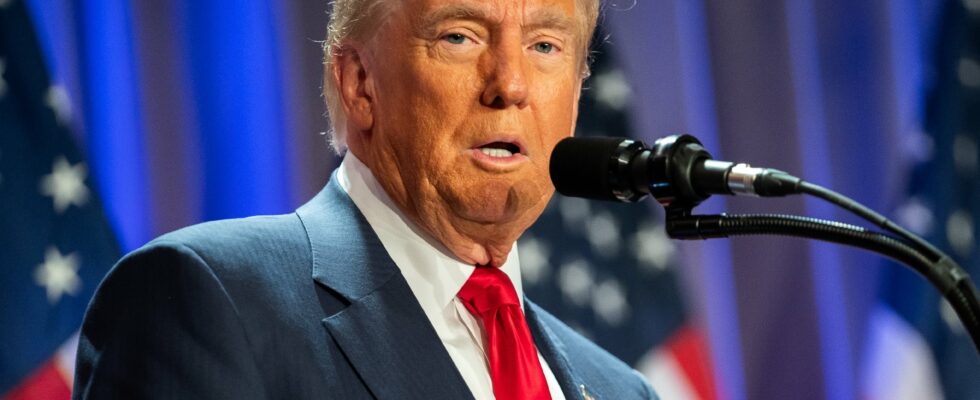“Don’t ask yourself what the United States can do for you, ask yourself what Europe can do for itself.” It was undoubtedly Giorgia Meloni who, in an open reference to Kennedy, best captured the spirit of the times after the election of Donald Trump. Europe is approaching the four years of Trump’s mandate in a worrying economic situation: industrial production in free fall, weighed down by the double shock of energy costs – electricity and gas – much higher than for its competitors, and a China which is flooding international markets with its industrial overcapacity. It is an understatement to say that it is not prepared for the new shock that is coming with the massive customs duties that the United States will impose on European companies to rebalance the terms of a bilateral trade which is structurally unfavorable to them. .
Already, the Europeans know that, if they want to preserve the American security guarantee so as not to find themselves alone against Moscow, they will have to pay at least 1% of additional GDP for their defense. This is the minimum price to pay in order not to cut the line of communication with Washington. The rest will be negotiated at the level of customs duties.
What can Europe put in the negotiating basket? Clearly, energy will play a central role. Firstly, because Europe needs American liquefied natural gas (LNG) – and it will need it even more if Trump puts pressure on it to completely give up Russian gas, which it still imports in the form of LNG. . It is not impossible that Trump will demand that European clients finance additional drilling through long-term contracts, something they have until now been reluctant to accept. The United States would thus ensure that, even if an agreement is reached on the war in Ukraine, the Europeans do not return to Russian gas – hello Berlin!
Then, Trump could put pressure on the Europeans to stop financing the Chinese low-carbon industry by purchasing solar panels, electric vehicles and soon these offshore wind turbines on which Beijing is rapidly moving upmarket. and massively. This means the end of the Green Deal which is de facto nothing other than a buy Chinese deal. Renouncing Chinese low-carbon technologies will be expensive in the short and medium term because they will have to be developed in Europe, at much higher costs, but will help establish a viable domestic low-carbon industry in the medium or long term.
Avoid a disaster scenario
It is still necessary that the European peoples have not revolted by then, wrung out by these massive investments in defense and energy. To avoid this dark scenario, everyone immediately understands that it is time to drastically review a certain number of absurd rules that we have imposed on ourselves and to listen to some of the proposals from Mario Draghi and Enrico Letta, particularly on the capital market.
In the energy field, three levers for rapid action exist: postpone the 2035 ax on the ban on the sale of new thermal vehicles to 2040 as initially proposed by the Commission; massively reduce taxes on electricity – a product for which we want to increase consumption, we tax it little or not at all! ; relaunch nuclear power much more quickly, in collaboration with the United States against the South Koreans, Russians and Chinese who currently dominate the global atomic market.
The brutality of Trump’s America reminds us of a truth that strangely, through naivety or denial of a reality that we shape less and less, we have neglected: the defense of our interests. “The Union aims to promote peace, its values and the well-being of its peoples.” Europe always talks about its values, but Article 3 of the Treaty on European Union refers just as much to the defense of its interests when it talks about the “well-being of its peoples”. The principle is simple: Europe first.
Cécile Maisonneuve is founder of Decysive and advisor to the Ifri Energy and Climate center
.
